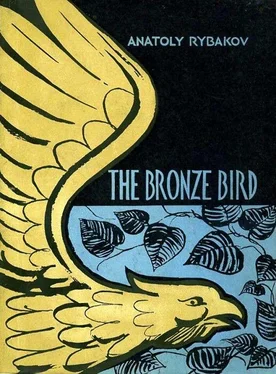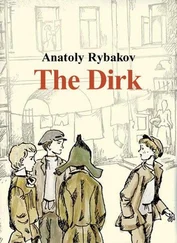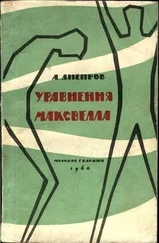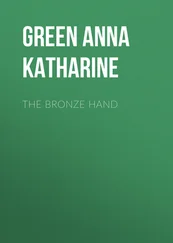Anatoly Rybakov - THE BRONZE BIRD
Здесь есть возможность читать онлайн «Anatoly Rybakov - THE BRONZE BIRD» весь текст электронной книги совершенно бесплатно (целиком полную версию без сокращений). В некоторых случаях можно слушать аудио, скачать через торрент в формате fb2 и присутствует краткое содержание. Город: Moscow, Год выпуска: 1956, Издательство: Foreign Languages Publishing House, Жанр: Детские приключения, Детектив, Исторические приключения, на английском языке. Описание произведения, (предисловие) а так же отзывы посетителей доступны на портале библиотеки ЛибКат.
- Название:THE BRONZE BIRD
- Автор:
- Издательство:Foreign Languages Publishing House
- Жанр:
- Год:1956
- Город:Moscow
- ISBN:нет данных
- Рейтинг книги:5 / 5. Голосов: 1
-
Избранное:Добавить в избранное
- Отзывы:
-
Ваша оценка:
- 100
- 1
- 2
- 3
- 4
- 5
THE BRONZE BIRD: краткое содержание, описание и аннотация
Предлагаем к чтению аннотацию, описание, краткое содержание или предисловие (зависит от того, что написал сам автор книги «THE BRONZE BIRD»). Если вы не нашли необходимую информацию о книге — напишите в комментариях, мы постараемся отыскать её.
THE BRONZE BIRD — читать онлайн бесплатно полную книгу (весь текст) целиком
Ниже представлен текст книги, разбитый по страницам. Система сохранения места последней прочитанной страницы, позволяет с удобством читать онлайн бесплатно книгу «THE BRONZE BIRD», без необходимости каждый раз заново искать на чём Вы остановились. Поставьте закладку, и сможете в любой момент перейти на страницу, на которой закончили чтение.
Интервал:
Закладка:
On the stage was a small table covered with a red cloth. Sitting at it were the chairman of the Village Soviet Ivan Vasilyevich and Boris Sergeyevich. The chairman rose to his feet and called for silence.
"Citizens," he said in a tone of voice he reserved for solemn occasions. "Citizens. I declare the meeting open. The central authorities have decided to organize a labour commune in the Karagayevo estate for children who have been rescued from the streets. The report will be made by the headmaster, Boris Sergeyevich. Please, do not smoke."
But everybody went on smoking.
Boris Sergeyevich went up to the edge of the stage. The audience fell silent and fixed their eyes on him.
"Comrades," Boris.Sergeyevich began, "the commune is being organized for the pupils of a children's home. All of them have been waifs and some have even been delinquents. I am telling you this openly so that everybody will know how matters stand..."
He made a pause. A deep-toned hum began to fill the hall. At first it was the low, restrained conversation of many people in different parts of the hall. Then everybody spoke at once, loudly and excitedly. The climax was provided by a shrill female voice crying:
"They'll rob us and cut our throats."
The voice belonged to a woman with a baby in her arms. She was wearing a big, flowery shawl.
"I repeat, comrades," Boris Sergeyevich said, "that some of them have been delinquents, but that is a thing of the past. In the course of the few years they have spent at the children's home, they have become quite different. They have mastered various trades, know and like their work and have learnt to respect the collective. In short, I can vouch for each of them. You will see for yourselves that the best of relations will shape between you and the members of our commune. You will not be offended by them and, I hope, they will not be offended by you."
As Boris Sergeyevich spoke, the noise swelled up again. Misha followed the meeting attentively and saw that though the kulaks did not shout themselves, they encouraged everybody else. They sat around Yerofeyev and the shopkeeper in a small but united and embittered group, which was aware that it had the sympathy of most of the people at the meeting, because nobody wanted the commune and they were all afraid of the communards, about whom they had been told hair-raising stories.
Misha was sorry for Boris Sergeyevich, who looked so alone on the stage as he faced the hostile meeting, which refused to listen to him and kept interrupting him with malicious jibes. His sympathies were all with Boris Sergeyevich, but he could do nothing to help him.
Meanwhile, the meeting stormed and raged. The women were particularly agitated.
"We don't want your commune!" they shouted. "We'll chase those bandits of yours away whatever happens! Go back from where you came!"
The chairman rose to his feet and cried out:
"Order! Order! Let the comrade have his say and we'll discuss the matter afterwards. Women, be quiet! If you don't I'll turn you out!"
"Just try!" a perky female voice shouted in reply. "We'll turn you out!"
There was an outburst of laughter. But the noise did not abate, on the contrary-it grew louder.
Boris Sergeyevich did not even try to say anything. He stood on the stage, sternly gazing at the meeting from under his spectacles.
It was then that Misha, Genka, Slava and all the other youngsters did what they usually did at school meetings whenever there was a noise such as now-they chanted:
"Si-lence! Si-lence! Si-lence!"
At first, their voices were lost in the general hubbub, but when they were joined by many of the village children, they outshouted everybody.
That was so new and unexpected that the villagers fell silent and stared in bewilderment at the children.
Finally, at a sign from Misha, the youngsters stopped shouting just as suddenly as they had begun.
Taking advantage of the silence and the ensuing general embarrassment, Boris Sergeyevich said:
"You also have children. There they are, sitting beside you." He shot an attentive and reproachful look at the women sitting in the front rows with children, and continued, "Your children are sitting beside you. You love them and watch over them. After the meeting they will go home where they have food, a bed, a roof over their heads, and the care of their mothers. Why then are you so cruel to children whom war, ruin and famine have deprived of everything-home, family and parents? I ask you why are you so cruel and unjust to them? What wrong have they done to you?"
He paused, waiting for an answer.
But silence was the only reply. Everybody sought to avoid Boris Sergeyevich's glances. Tears welled up in the eyes of some of the women. They did not hide their tears, but pretended they were blowing their noses.
The boys were jubilant. Boris Sergeyevich had found the right words! There was no denying that he had made an impression.
In a severe and stirring tone of voice, he continued: "Our country is poor. But the Soviet authorities have done everything in their power to return children to life, to make good citizens out of them. Nobody will be permitted to hinder this great and noble task. Neither those who are hoping that the landlords will return and are keeping their estates for them, nor those who have illegally taken land and are exploiting other peasants." He looked sternly at Yerofeyev and the men around him. All eyes followed his gaze.
"In short," Boris Sergeyevich said in conclusion, "it has been decided to organize a labour commune. That decision is final and irrevocable. I came here not to ask your permission, but to discuss with you how we shall live and work together. If you want to discuss that question, I shall be only too glad to do it. If you don't want to, I can go away. But we shall have a commune all the same."
Yerofeyev asked for the floor. He climbed up to the stage, took off his cap, revealing a bald head, and said:
"What the comrade representative has said about the children is quite true. We, too, want things to be done justly, as God commands, so that nobody is offended by us and we are not offended by anybody. But the comrade representative said nothing about the land. We want to know what's going to be done about it."
"The commune does not claim anybody's land," Boris Sergeyevich said, "it will only take what belongs to the government and is being illegally used by citizen Yerofeyev and certain other citizens. Do you have the right, citizen Yerofeyev, to own nearly 250 acres of land?"
"Not I, but the whole community is using it," Yerofeyev said, sweeping the hall with his hand as if to show that everybody present was using the land in question.
The woman in the shawl, who had cried out about the communards, suddenly shouted:
"What are you pointing at us for? We have never so much as smelt that land! You've raked it in all for yourself!"
Paying no attention to this outburst, Yerofeyev continued: "The land is mine by law. I have a paper from the gubernia authorities to prove it."
Boris Sergeyevich looked sternly at Yerofeyev and said:
"We know how much you paid for that paper, citizen Yerofeyev."
Yerofeyev shot a guarded look at him, then lifted his arms:
"I don't know what you are talking about."
"You will very soon," Boris Sergeyevich said curtly. Then he addressed the meeting, asking, "Whoever else is using that land, will they please stand up."
Nobody stood up. There was complete silence, which was broken after a few moments by an old man, who said:
"We all know who's using it."
Yerofeyev suddenly stretched out his hands, turned the palms up and said:
"These are the hands that ploughed the land. Am I not a working man?"
The woman in the shawl sprang up from her seat and cried:
Читать дальшеИнтервал:
Закладка:
Похожие книги на «THE BRONZE BIRD»
Представляем Вашему вниманию похожие книги на «THE BRONZE BIRD» списком для выбора. Мы отобрали схожую по названию и смыслу литературу в надежде предоставить читателям больше вариантов отыскать новые, интересные, ещё непрочитанные произведения.
Обсуждение, отзывы о книге «THE BRONZE BIRD» и просто собственные мнения читателей. Оставьте ваши комментарии, напишите, что Вы думаете о произведении, его смысле или главных героях. Укажите что конкретно понравилось, а что нет, и почему Вы так считаете.












